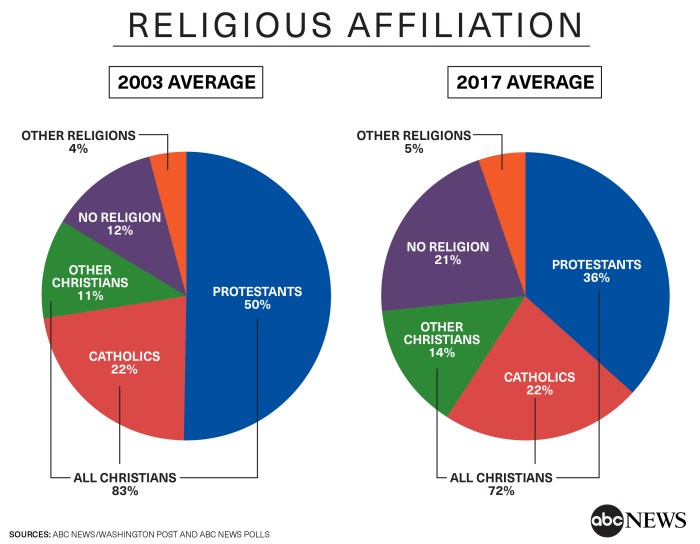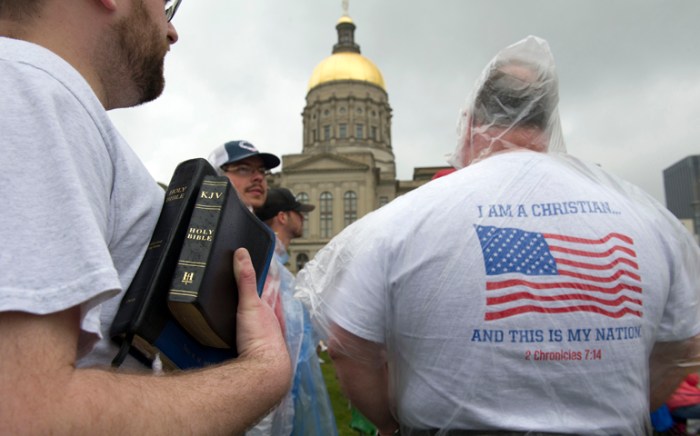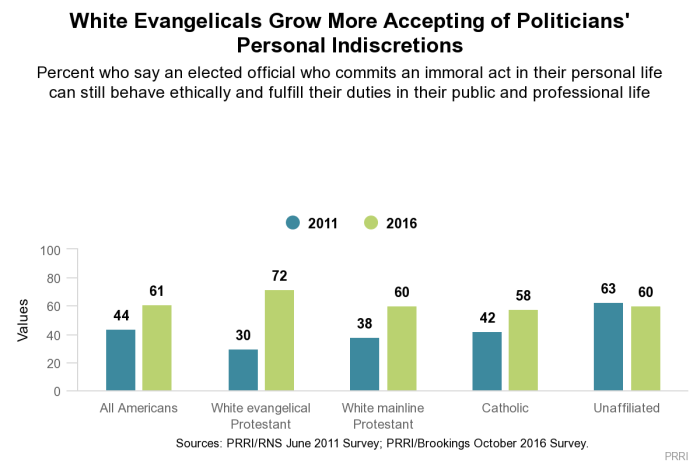White evangelical protestants are more likely to affiliated with conservative political parties, social causes, and media outlets. This alignment stems from their deeply held religious beliefs and values, which shape their views on a wide range of issues.
Their political engagement is characterized by high voter turnout and a significant influence on election outcomes. They are particularly passionate about issues such as abortion, same-sex marriage, and religious freedom.
Affiliation Patterns
White evangelical Protestants exhibit distinct affiliation patterns that shape their political and social views. These patterns are influenced by various factors, including their theological beliefs, cultural heritage, and socioeconomic status.
Key Factors Influencing Affiliations, White evangelical protestants are more likely to affiliated with
- Theology:Evangelical beliefs emphasize personal salvation through faith in Jesus Christ, a literal interpretation of the Bible, and a focus on moral living. These beliefs guide their political and social positions.
- Culture:White evangelical Protestants often share a common cultural heritage that includes a strong sense of community, family values, and patriotism.
- Socioeconomic Status:Evangelical Protestants tend to be concentrated in rural areas and have lower levels of education and income compared to the general population.
Political Engagement

White evangelical Protestants are known for their high levels of political engagement. They have consistently voted at higher rates than other religious groups and have played a significant role in shaping the political landscape.
Reasons for High Voter Turnout
- Religious Conviction:Evangelicals believe that their faith should influence their civic duties, including voting.
- Political Mobilization:Evangelical leaders often encourage their followers to participate in politics and provide guidance on voting decisions.
- Single-Issue Voting:Many evangelicals prioritize certain issues, such as abortion or religious freedom, and vote based on candidates’ stances on those issues.
Impact on Election Outcomes
Evangelical voters have a significant impact on election outcomes, particularly in close races. Their support for conservative candidates has helped shape the Republican Party platform and has played a role in the election of Republican presidents.
Social Conservatism

White evangelical Protestants hold socially conservative views that influence their attitudes and behaviors. These views are rooted in their religious beliefs and cultural traditions.
Stances on Key Issues
- Abortion:Evangelicals overwhelmingly oppose abortion, believing that it is morally wrong and should be illegal.
- Same-Sex Marriage:Evangelicals generally oppose same-sex marriage, arguing that marriage should be defined as a union between a man and a woman.
- Gender Roles:Evangelicals tend to adhere to traditional gender roles, with men as the leaders of families and women as nurturers.
Impact on Social Interactions
Evangelicals’ social conservative views shape their interactions with others. They may distance themselves from individuals or groups that hold opposing views on moral issues.
Media Consumption: White Evangelical Protestants Are More Likely To Affiliated With

White evangelical Protestants have distinct media consumption habits that influence their beliefs and perspectives.
Preferred Media Outlets
- Religious Media:Evangelicals consume a wide range of religious media, including books, magazines, and television programs.
- Conservative Media:They also prefer conservative news outlets that align with their political and social views.
- Social Media:Evangelical leaders and organizations use social media to connect with their followers and disseminate information.
Influence of Media
Media consumption reinforces evangelicals’ existing beliefs and values. It provides them with a sense of community and confirmation of their views.
Education and Income
White evangelical Protestants have lower levels of education and income compared to the general population.
Educational Attainment
| Group | Percentage with High School Diploma or Less | Percentage with College Degree or More |
|---|---|---|
| White Evangelical Protestants | 60% | 25% |
| General Population | 40% | 35% |
Income Levels
Evangelicals also have lower median household incomes than the general population.
Implications
Lower levels of education and income may contribute to evangelicals’ reliance on traditional values and their distrust of institutions perceived as threatening to their way of life.
FAQ Summary
What are the key factors that influence white evangelical protestants’ political affiliations?
Their religious beliefs, social values, and cultural identity play a significant role in shaping their political views.
How do white evangelical protestants’ media consumption habits affect their beliefs and perspectives?
They tend to prefer conservative media outlets that reinforce their existing beliefs and values.